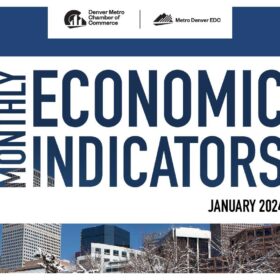37 Calendar Days left until May 6 – 572 bills introduced – 317 House – 255 Senate – 246 Bipartisan – 136 bills postponed indefinitely – 77 signed by the Governor
The Legislature is closed on Friday April 3, 2015 in observance of Good Friday.
Only 37 calendar days left in the session – there is only 27 legislative days left which will mean long days and nights to approve the state budget and school finance as well as debate many other controversial issues like police reform, education reform, minimum wage, ballot transparency, construction defects, workforce development, urban renewal/TIF, agency sunset legislation, senate confirmations and many, many other issues.
2015 Long Bill Introduced – this is the bill to set the 2015 – 2016 state budget. It was introduced in the Senate this year so their schedule this week will be caucusing, debating and approving the bill. It will be approximately $26 billion dollars that includes both state and federal funds. The state general fund is around $10 billion. Because almost all of the budget is mandated spending, the ability to make significant changes is limited but will generate a lot of discussion and amendments. The House will go through the same process the week of April 6.
HB 1057 Requiring Fiscal Impact Statement for Ballot Initiatives – although introduced early in the session, HB 1057 just had its first hearing before the House State Affairs Committee. Organizations testifying in support of the bill included the League of Women Voters, Colorado Concern, the Children’s Campaign, the Colorado Farm Bureau, the Colorado Petroleum Association and the Colorado Municipal League. A total of 38 organizations are in support of HB 1057. In addition to several individual citizens, organized groups like AFL-CIO, CEA, 9-5, America Votes, local anti-fracking advocates (Longmont and Arapahoe County), Conservation Colorado, Common Cause, Prochoice advocates, Food and Water Watch and Independence Institute testified against the bill.
Supporters argued that the bill simply requires the same fiscal analysis that is used for legislation and the voter election guide commonly referred to as the bluebook which is published right before the election. Voters should have as much information as possible on the potential impacts of a ballot initiative before they sign a petition. The non-partisan legislative council would perform the analysis. Opponents argued that it is unconstitutional because it lacks the ability for judicial review. Others argued that it gives only one side of the story and could be misleading without all the information being disclosed. Others argued that it would inhibit their ability to get something on the ballot because of the cost to challenge the analysis.
The Chair of the Committee, Rep. Su Ryden (D) Aurora, unexpectedly tabled the vote on the bill to a later date clearly upsetting one of the sponsors, Rep. Lois Court (D) Denver. One member of the committee accused the chair of delaying the vote in order to get democratic opposition to the bill to kill it. The Governor strongly supports the bill and mentioned it in his January State of the State Address to legislators.
SB 223 Allows Students to Opt-Out of Statewide Standardized Testing – the first hearing was held this week in the Senate Education Committee on a bill that would allow students to opt of out of statewide testing without penalties to the students, teachers, principals and districts. The bill has broad bi-partisan co-sponsorship in both houses and after several hours of testimony passed the committee on a vote of 8-1 with Sen. Johnston (D) Denver as the only no vote. The bill now goes to the Senate floor for debate after the senate has passed the budget. The Governor has voiced his opposition to the bill so it could result in a veto if it makes it that far.
Workforce Development Legislation Continues Through the Process – the several bills in the package were in committee this past week and continue to receive bi-partisan support. Some have made it through the appropriations process although not all may do so. The budget has set aside $8.5 million dollars to fund only the bi-partisan sponsored bills. Without that support and if the budget request exceeds the agreed amount, it could mean the end for those bills.
Pete Kirchhof
[email protected]
303 507-9587 (C)



